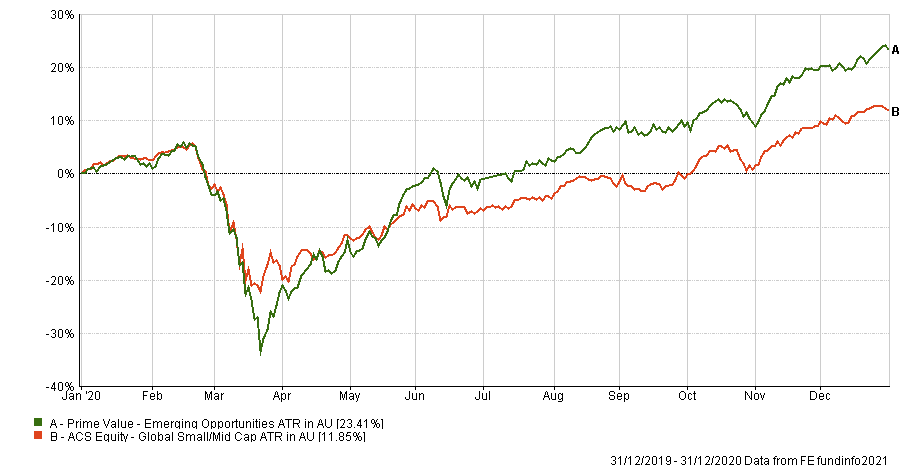Travel stocks help small-cap fund see 23% returns
By Laura Dew
21 January 2021
Early purchases of stocks in recovery sectors such as travel has helped the Prime Value Emerging Opportunities fund to deliver returns of more than 20%, making it one of the best-performing small-cap funds of 2020.
Holding onto stocks such as Helloworld Travel has helped the Prime Value Emerging Opportunities fund deliver returns of over 20% during 2020.
The firm said it had managed to achieve these returns by buying stocks which would benefit from the vaccine early on when they were trading at attractive prices.
According to FE Analytics, the fund returned 23.4% during 2020, which was more than double the returns for the global small and mid-cap sector which gained 11.8%.
Performance of Prime Value Emerging Opportunities fund versus global small and mid-cap equity sector during 2020

The fund’s largest sector allocation was to financials at 25.7% followed by consumer discretionary at 18%.
Manager Richard Ivers said there had been three clear phases to the fund’s performance; during the March market crash, the rebound in April-October and then the market rally on the vaccine success in November.
Performance was helped by purchasing stocks which it expected to be vaccine beneficiaries when they were cheap during the rebound which later paid off when the market rallied. This included travel firms such as Auckland Airport and Helloworld Travel.
“There were clear COVID-19 winners and losers,” he said. “We maintained a long-term view, selling winners (tech and online retail) when valuations became stretched and selectively purchasing COVID losers (travel and media) when valuations were extremely attractive.”
Helloworld Travel, in particular, turned out to be one of the fund’s largest contributors after it rose 78%.
In 2021, Ivers forecast volatility to continue to be an issue for markets, particularly in the small-cap space, but that this would provide an opportunity for the fund.
“There are many stable, less glamorous small cap companies which are attractively priced and reduce portfolio volatility,” he said.
“Avoiding hot stocks means we may leave some short-term returns on the table but the focus needs to be on longer term, risk-adjusted returns to produce consistent performance.”
See full article here: Money Management